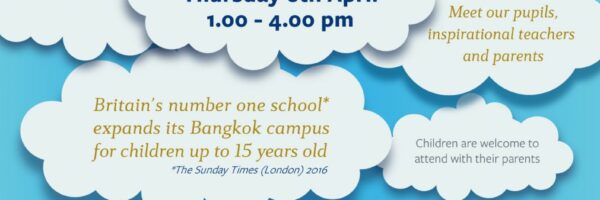Why Arts Education Matters
There is a growing trend in schools towards limiting the time available for creative subjects. But recent educational research has indicated that if we want our children to do better academically and socially, an arts education might provide the path to success. Indeed, the World Economic Forum has named critical thinking, emotional intelligence and creativity as some of the qualities required for success in the 21st century.
Academic performance
Recent educational research has emphasised the link between learning music and the performing arts and strong academic performance, helping students to improve literacy, mathematics and cognitive development.
Evidence suggests that students who participate in learning the arts achieve higher grades in school, and musically trained students show enhanced brain performance. Music also helps develop various attributes, from motor skills in learning to play musical instruments, through to an appreciation of mathematics via exploring rhythm and tempo.
A 2015 study conducted by Michael Anderson, associate professor at the University of Sydney, examined the academic and personal wellbeing outcomes for primary and high school students across 15 Australian schools. He found that students were more likely to do better in academic and social spheres where they were actively engaged with the arts as makers and doers. Anderson’s findings have significant implications for the future of schooling, and suggest that programmes such as the International Baccalaureate currently lead the way by integrating creative subjects in all of their programmes.
Interestingly, Anderson emphasises the importance of students actively creating within arts subjects as players, performers, painters and so on. He stresses that it is creation, rather than pure consumption, that is the key element of arts education that enhances academic progress. So education systems that focus only on exam after exam are missing the bigger picture. In creating more time for the arts, schools can see pupils achieve even more.
Personal skills
As well as enhancing academic performance, the performing arts teach children a range of personal skills that help them thrive. For example, in directing a play young people develop exactly the attributes required in the modern workplace: creativity, critical thinking and the ability to collaborate. In studying, rehearsing and learning to perform, children develop important traits including self-esteem, discipline and confidence. These personal skills are vital for young people even if they do not pursue music as a career. A lot of educators talk now about the need to build character: the performing arts do just that.
Self-confidence
There is no denying that performance builds confidence. And whether it’s giving a presentation at work, teaching your children an important lesson or retelling a funny story, performance is at the heart of all of it. Getting up on stage to sing in a choir or acting in the school play can help children build self-esteem and overcome anxiety.
Beyond this, the arts offer young people a space in which to exhibit a part of themselves that may not surface in the course of other subjects. Artistic endeavours can help students make sense of their emotions; professional dancers, for instance, often report a sense of freedom, calm and joy as they dance. Amidst packed timetables it’s important that young people have time dedicated to figuring out who they are and how they fit in the world.
The creative products students make as part of their arts education – plays, dances and works of art – elevate each student’s idea of who they are to more than the A/B/C of their exam results. These creative opportunities give every student, not only the academic high-fliers or sporting superstars, the chance to feel proud of themselves.
Teaching future innovators
Creativity also plays a key role in moving science and technology forward – improving A.I., better action cameras and the latest in app technology depend on good creative brains. When introducing the iPad 2 in March, Steve Jobs summarised his innovation strategy thus: “It is in Apple’s DNA that technology alone is not enough – it’s technology married with liberal arts, married with the humanities, that yields us the results that make our heart sing.”
When young people write stories, compose songs or paint they make use of what they know and invent something new. The arts encourage self-starters: students have to make independent decisions and be self-critical. This creative process is at the heart of all innovation and is likely to be needed by all as we move into the future when we don’t know what skills will be required. When facing new challenges, it’s our imaginative problem solving skills we fall back on to find solutions.
Arts education at St. Andrews International School Bangkok
St. Andrews International School Bangkok is the only school in Bangkok able to offer students the benefit of unique collaborations with world leading performing arts conservatory The Juilliard School in New York, and one of the world’s top universities, the Massachusetts Institute of Technology (MIT). These partnerships enable us to offer students an educational experience second to none.
Nord Anglia Education’s collaboration with The Juilliard School prepares students for the world stage. Our students are connected to Juilliard’s worldwide network of performers, teaching artists and curriculum specialists, regularly interacting with them through workshops, masterclasses and performances in school. Students follow an innovative embedded arts curriculum designed by Juilliard that enriches our already high quality teaching and learning. We have seen how working with teachers and artists of this calibre inspires young minds to achieve their dreams, and we are very proud of our collaboration and the extra dimension it brings to our students.
New in 2017, St. Andrews offers an innovative STEAM (science, technology, engineering, arts and mathematics) curriculum designed by MIT. This interdisciplinary approach to learning science and technology inspires students to create and build through hands on, cross functional activities and challenges. Our teachers will receive training each year at MIT from renowned academics, and our students will visit MIT annually to immerse themselves in MIT’s problem solving culture, trying their hands at building robots, bioengineering and coding.
About St. Andrews International School Bangkok
St. Andrews International School Bangkok is an inclusive co-educational British International school for students age 2-18 years. The school will open a brand new High School facility this summer, conveniently located on Sukhumvit Road between Ekkamai and Phra Khanong BTS stations. This state-of-the-art campus offers world-class facilities including modern learning spaces, numerous science labs, extensive sports facilities, and a performing arts centre. The school offers a range of courses tailored to the requirements of each student, culminating in the majority of students following the International Baccalaureate Diploma Programme (IB).
For more information on St. Andrews International School Thailand, visit www.standrews.ac.th, call +662 381 2387 or email [email protected].
Our curriculum is designed to inspire, motivate and engage students to take control of their own learning. Our personalised approach is designed to offer the right balance of challenge and support so that every student makes exceptional progress.
About Nord Anglia Education
Nord Anglia Education is the world’s leading operator of premium international schools. We educate over 34,000 students at our 43 premium schools in China, Europe, the Middle East and Southeast Asia and North America. We are driven by one unifying philosophy – we are ambitious for our students, our people and our family of schools. Our schools deliver a high quality education through a personalised approach enhanced with unique global opportunities.
Visit www.nordangliaeducation.com for more information.



